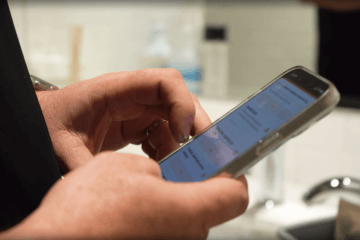We have a rule here at OrangeQC. We never say “We don’t have time for that.”
Instead, we force ourselves to admit the truth: “It’s not a priority.”
This simple swap, popularized by a Wall Street Journal article, keeps us honest. In work (and life), a lot demands our attention. There are the daily tasks that keep the lights on and the business running. There are the calls, emails, and problems that pop up and demand our attention right now. And then there are long-term projects that need to get done… eventually.
It’s the classic Eisenhower Box, which helps rank tasks on a scale of urgency and importance:

(Try making plotting your to-do list on a chart like this, instead of just writing it as a list, and see how it helps you plan your time more effectively.)
On any given day, there are countless tasks we could do, but we have to decide what we’re actually going to put on our to-do list today. So we prioritize.
For us, that means always responding quickly to our clients when they reach out for help (urgent and important). But it also means taking time to develop new features that will make the OrangeQC app and website more valuable for you. Improving our tools isn’t urgent, in the sense that if we take a Tuesday off from working on a useful new feature, our clients won’t suffer (or notice). But it’s definitely important. If those improvements never got made, we wouldn’t be doing our best to help your business.
That’s why, when we sit down to talk about our team’s to-do list, we force ourselves to own our priorities. If we were to brush off tasks by saying we “don’t have time” for them, we’d be lying to ourselves. No, we don’t have time for everything, but we make time for our priorities. Sometimes it hurts to look at a task that would be good to accomplish and decide to put it on the back burner for now. But when we admit that “it’s not a priority,” we’re making sure that the things we do prioritize get done. We’re ensuring that the important doesn’t get lost in the urgent.
What might this concept look like at your janitorial business?
You’ve got your own urgent, important tasks, such as responding quickly if there’s a problem at a site. You’ve got the day-to-day cleaning or maintenance that needs to get done. And then there are tasks that are less urgent, or time-sensitive, but still need to get done: inspections to ensure great quality control, for example, or training your staff on the most efficient cleaning techniques.
We sometimes hear from cleaning businesses who don’t use quality control software that they “don’t have time” to do inspections. A more honest statement would be “Inspections are not a priority for us.”
What are your biggest priorities as a business? Maybe it’s increasing your team’s efficiency. Maybe it’s becoming more environmentally friendly and marketing that benefit to potential clients. Maybe it’s identifying and promoting the best talent so that your team is ready to grow.
Every business will have its own unique priorities, but by being clear about what they are—and organizing our to-do lists accordingly—we set ourselves up to flourish in the long term.



